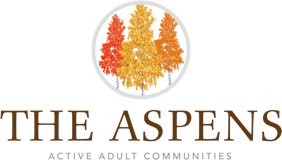The Why, What and How of a Meaningful Life
In a recent survey, 69% of retirees ranked “Having a sense of purpose in life” as an important pillar for optimal well-being. At certain points in our life, purpose feels almost built in through work and family. But in the next phase of life, we have to be more intentional about maintaining the activities and relationships that give life meaning.

It’s well worth the effort, as it’s not just our emotional lives that are impacted by the presence or absence of purpose. Several studies have identified a link between physical health and purposeful living. One study concluded that people without a “strong life purpose” were more likely to die than those with one, and specifically more likely to die of cardiovascular diseases. Another linked purpose with a reduced risk of Alzheimer’s disease and a slower rate of cognitive decline. Sleep quality, glucose control and nutrition have all been shown to be influenced by a person’s relationship with a sense of purpose.
But what does it mean to have a life of purpose? Purpose has been defined as "a self-organizing life aim that stimulates goals." It may be helpful to think of purpose as the thing that gets you up in the morning. It doesn’t have to be a huge, world-changing thing, either – anything that makes you feel connected to something bigger or gives you a sense of direction can do the trick. Consider the following:
- Broaden your perspective by volunteering
- Tap into your curiosity through continuing education
- Explore your creativity by trying your hand at art
- Find meaning through relationships with new friends
- Discover how exercise can move you in more ways than one
- Use meditation to discover your authentic self
Sometimes, these things are easier said than done. That’s why it’s important to have some tools that will help you develop and act on your purpose:
- Ask yourself questions: When do you feel so immersed in something that you lose track of time? What means so much to you that doing it outweighs any inconvenience or discomfort?
- Be open to the new: Your purpose from ten years ago may not be your purpose now. Don’t try to force something just because it’s familiar. Expand your definition of purpose and see what sticks.
- Change things up: Doing something as simple as drawing with your non-dominant hand has been shown to increase connectivity between brain cells which in turn can make it easier to develop new mindsets and learn new skills.
- Do something daily: Practice doesn’t make perfect – it makes permanent. Find one thing to practice every day: meditation, yoga, journaling – anything that allows you the space to take daily inventory of your life’s intentions will work.
- Prioritize balance: Your quest for purpose should always be complemented by an appreciation of what you already have. Finding the sweet spot between complacency and aspiration is where joy lies.
And remember, you don’t have to go it alone. Active adult communities like The Aspens Senior Living are designed to connect residents with new experiences, new friends and a new sense of direction for this phase of life. Discover life at The Aspens.

